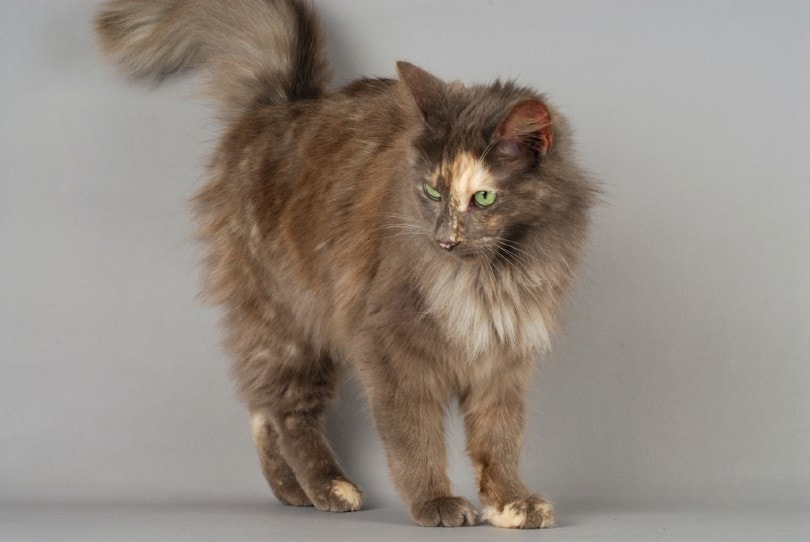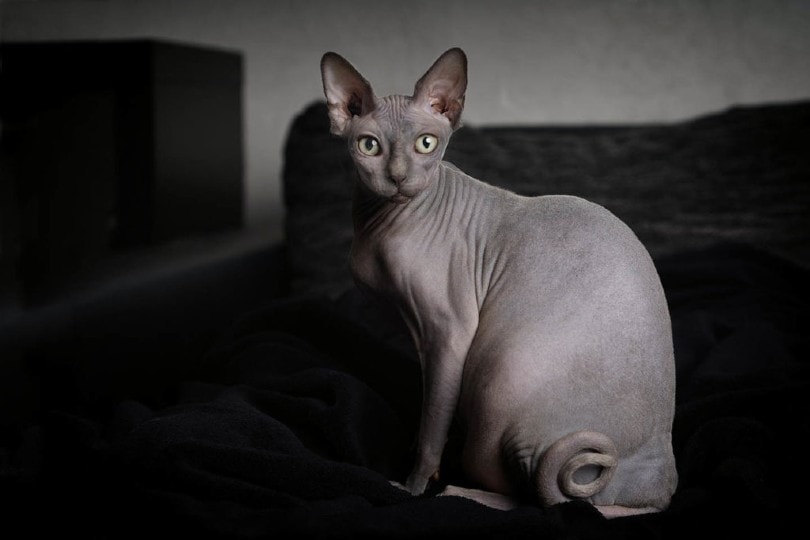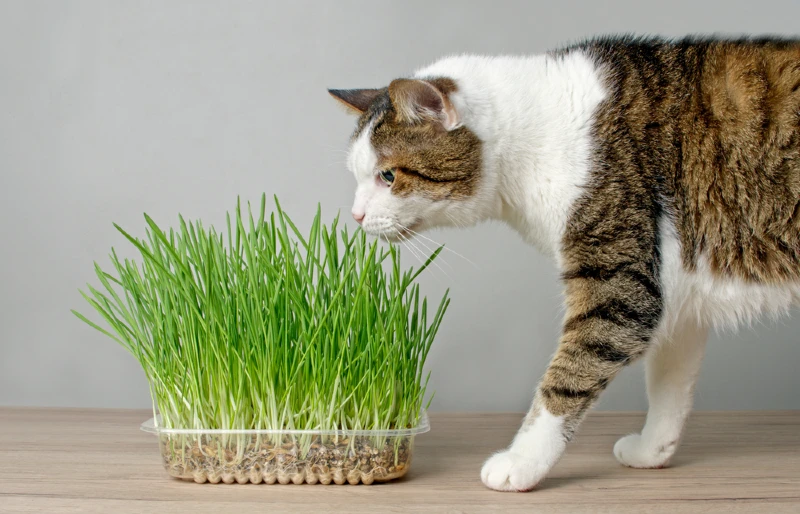Do Cats Purr When They Are in Pain? Vet-Reviewed Facts & FAQ
Updated on
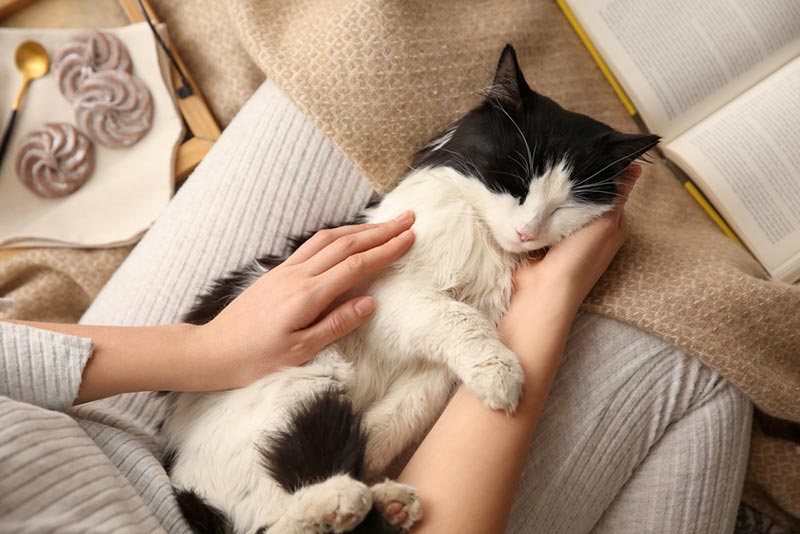
How much do you love hearing your cat purr while they are curled up in your lap? It’s a relaxing sound that lets you know that your cat is feeling good at that moment. But have you ever wondered if cats purr for other reasons, like when they are in pain?
Cats purr for several reasons, and while the happy contended purr is the most common, cats do sometimes purr when they are in pain.
Keep reading if you’re interested in learning about all the reasons that cats purr and when you should be worried.
How Do Cats Purr?
The cat’s brain is wired for purring by sending information to the muscles in the cat’s larynx. Small bones run from the back of the cat’s tongue and up to the back of the skull.
The brain’s signal vibrates those muscles and bones, and the air flowing over the vibrating muscles and bones creates the purr as the cat breathes in and out.
Cats are capable of purring continuously as the air passing over the vibrating muscles creates a continuous sound. You might be able to hear a slight difference as your cat inhales and exhales.
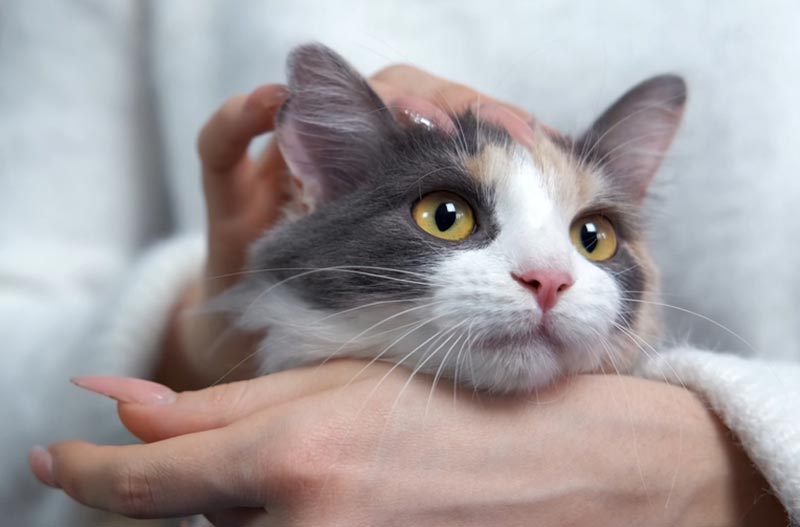
Why Do Cats Purr When in Pain?
When cats are injured or in pain, they will sometimes purr. It’s quite common for mother cats to purr while in labor, and it’s thought that it’s a kind of self-medication.
Purring helps cats regulate their breathing, and it triggers a low-frequency vibration, which is thought to promote healing. These vibrations can build muscle, repair tendons, heal wounds and bones, lessen pain and swelling, and ease breathing.
This type of low-frequency vibration has even been used in studies on humans to stimulate bone growth and muscle strength.
Purring is also a form of self-soothing for a cat, like when we take a hot shower or bubble bath or when a child sucks their thumb.
 Top 5 Other Reasons Cats Purr
Top 5 Other Reasons Cats Purr
There are multiple reasons that cats purr. Here are the more common ones.
1. Contentment
This is what we usually envision when we think about cats purring. Happiness is the main reason that cats purr, so you’ll hear it when they are getting head scratches from you or while lying in the sun. They may even purr while you’re getting their meal ready and while eating. When a cat is feeling happy and contended, purring is a natural and automatic reaction.
2. Stress
Unfortunately, cats are prone to anxiety and stress, and they show that stress in a variety of ways, including purring. Like with pain, cats will purr to self-soothe, to help themselves calm down.
You can usually tell if a cat is stress-purring if they are panting or showing their teeth while purring. Additionally, the pitch of a stress purr is high pitched, while a happy purr tends to be low pitched.
It’s believed that when cats purr when content, it’s an automatic response, whereas when they purr from stress or pain, it’s intentional.

3. Wanting Something
If you’ve ever heard your cat purring when it’s close to dinnertime, you might have also noticed that the purr is higher pitched than usual. This makes it harder to ignore, and we’re much more likely to respond to a purr with a sense of urgency behind it.
A 2019 study had human subjects listen to a variety of purrs from different cats, which included low-frequency purrs of contentment and high-frequency purrs from cats that wanted something.
The subjects found the high-frequency purr to be a less-pleasant sound and subjects seemed to understand that there was an urgency and need behind it.
4. Communication Between Mother and Kittens
Kittens can start purring when they are just a few days old, as it’s how they form a bond with their mother and how they communicate. It essentially lets her know that her kittens are nearby and okay.
Kittens are born deaf and blind, so the mother purrs as a way to call her kittens to her for nursing. It’s also an effective way to calm her kittens and make them feel safe.
5. Greeting Other Familiar Cats
When two cats know each other, they will sometimes purr as a way of greeting. It’s believed that purring at another cat is a way of saying that they are friendly and mean no harm. You might have also noticed cats grooming each other and purring, which is probably contentment but might also be a sign of trust.
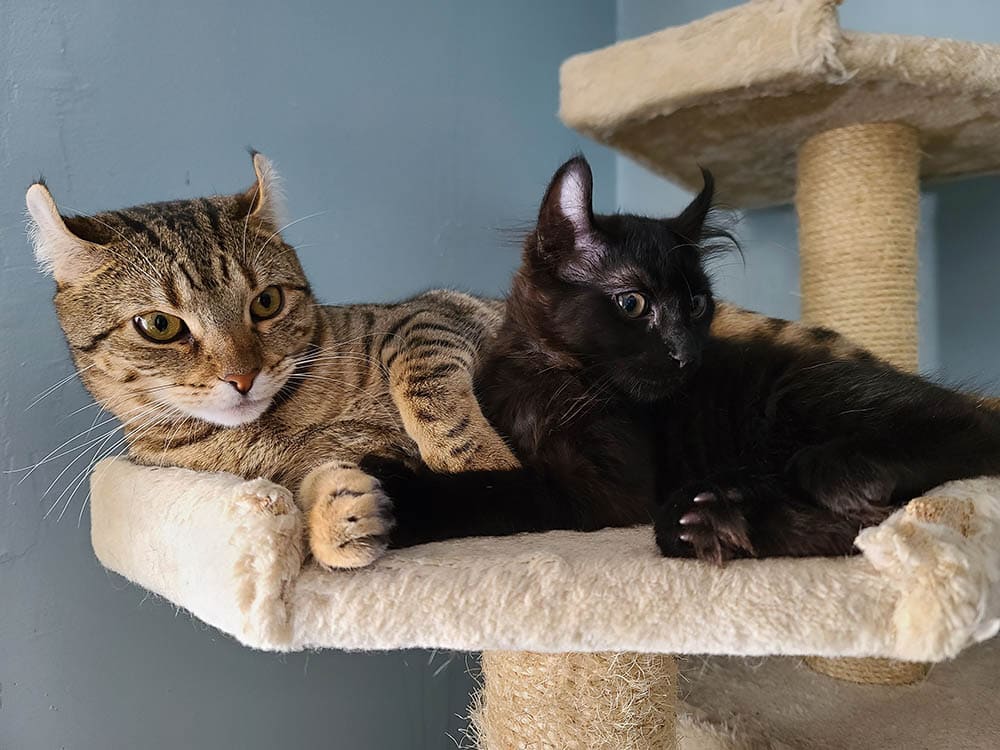
How Can You Tell Why a Cat Is Purring?
It shouldn’t be too difficult to figure out why your cat is purring, especially since you know your cat best.
The first thing that you should note is the pitch of the purr. Low-pitched purrs are from happy cats, and these tend to be more challenging to hear (depending on the cat). If your cat is purring while in a stressful situation, it’s likely that the purr (if there is one) will be higher in pitch.
What you should look out for is your cat purring while also acting differently. If your cat is not acting like themselves, speak to your vet to be on the safe side. A cat purring for what seems like no reason might merit a veterinary clinic visit.
Do Other Animals Purr?
Yes, other animals and birds are also known to purr. Many of them don’t purr the same way that cats do, but the sound means similar things:
- Badgers: They tend to purr while digging their burrow.
- Foxes: Like cats, they greet each other with purrs.
- Guinea pigs: Can purr when happy
- Raccoons: Raccoons make several sounds, including purring.
Final Thoughts
Cats can purr for many reasons. They can essentially turn it off or on when they need it. But unfortunately, this includes times when the cat is in pain.
This is one reason that it’s important to become familiar with your cat’s behavior and body language. This way, you can better judge if your cat is purring because they are happy or because something is wrong.
Featured Image Credit: New Africa, Shutterstock


 Top 5 Other Reasons Cats Purr
Top 5 Other Reasons Cats Purr